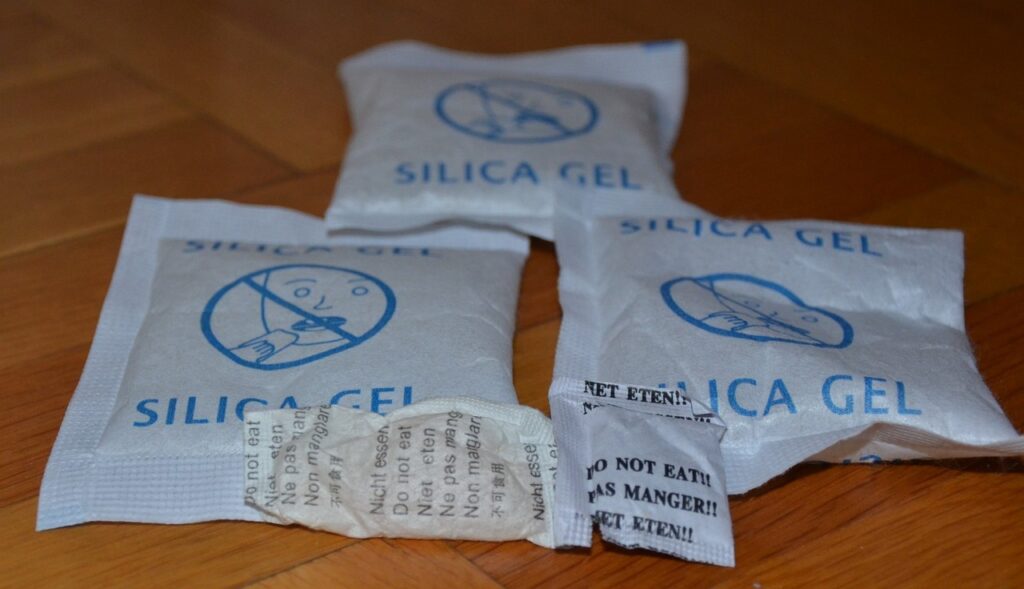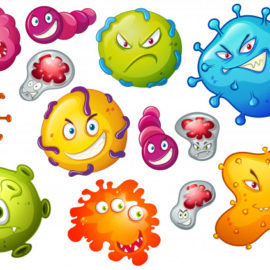
Silica gel packets are those small pouches often found in food, medicine, and other packaging. The common warning “Do not eat” has led many to wonder about their safety and potential toxicity. Given how often these packets appear in everyday products, it’s understandable that people have questions.
In this blog post, we will discuss what silica gel is, how it functions, its various applications, and whether it poses any health risks.
What Is Silica Gel?
Silica gel is an example of a desiccant. Desiccants are substances that have the capability to absorb and retain moisture. In many industries, silica gel is often used. It is made of silicon dioxide (SiO2), the same compound found in quartz and sand. Its porous structure allows it to absorb water molecules from the surrounding environment.
For this reason, it is very effective in keeping the humidity within the packaging at desirable levels. This is especially useful in preserving the quality and shelf life of various products.

Typically, silica gel comes in the form of tiny, spherical beads or granules. These beads have a vast surface area, filled with microscopic pores that attract and trap moisture. When exposed to humid conditions, the moisture is drawn into these pores and held there by molecular forces. Because of this, there is a reduction in humidity within a sealed environment.
One of the key benefits of silica gel is that it can be regenerated and reused. After the gel becomes saturated with moisture, it can be dried out by heating it to around 392°F (200°C), a process that drives off the absorbed water and restores its moisture-absorbing properties. This makes silica gel not only effective but also sustainable for repeated use in various applications.
How Is Silica Gel Used in Food and Medicine?
Silica gel’s moisture-absorbing properties make it indispensable in several industries, particularly food and pharmaceuticals.
In food packaging, silica gel packets maintains the product quality by controlling moisture levels. Many dry foods, such as snacks, nuts, and dehydrated goods, are highly susceptible to moisture. The moisture can lead to spoilage, mold growth, and changes in texture and flavor. By absorbing excess moisture, silica gel packets help keep these products fresh and crunchy, extending their shelf life and ensuring they remain safe to consume.
For example, consider a bag of potato chips. If moisture enters the packaging, the chips can become soggy and lose their crispness. Silica gel packets prevent this by maintaining a dry environment inside the package, preserving the product’s texture and taste. Similarly, in the case of powdered or granulated foods like spices and coffee, silica gel prevents clumping and caking, ensuring that these products retain their intended consistency and flavor.
In the pharmaceutical industry, silica gel is commonly included in the packaging of pills, capsules, and vitamins. Medications are often sensitive to moisture, which can lead to chemical degradation, reducing their potency and effectiveness. For instance, vitamins and supplements can lose their efficacy when exposed to humidity, while tablets can become sticky and clump together, making them difficult to dose accurately.
Common Uses of Silica Gel in Packaging:
| Product | Function |
|---|---|
| Powdered sugar | Prevents clumping and caking |
| Spices | Maintains flavor and aroma |
| Dried fruits | Prevents moisture-induced spoilage |
| Snack foods | Keeps food crispy |
| Coffee | Preserves taste and aroma |
| Tablets and capsules | Prevents clumping, ensures accurate dosing |
| Ointments and creams | Prevents moisture-induced separation |
| Insulin | Protects from moisture-related degradation |
| Vitamins and supplements | Maintains potency and efficacy |
Are Silica Gel Packets Toxic?
Silica gel packets often are packed in packaging that says, “Do Not Eat”. But silica gel is non-toxic and chemically inert, meaning it doesn’t react with other substances and poses no health risk when handled properly. In fact, silica gel is sometimes used as a lubricating agent in certain drug formulations, underscoring its safety in small quantities.
The warning on the packet is primarily about safety rather than toxicity. The small beads can pose a choking hazard, particularly for young children and pets. This is why ingestion should be avoided. However, if accidentally swallowed, silica gel typically passes through the digestive system without causing harm. A study found that silica gel ingestion accounts for 2.1% of annual poison control calls. But most cases result in no significant health issues, with only mild discomfort in some instances.
In certain cases, silica gel packets contain a moisture indicator, such as cobalt chloride. This indicator changes color when it absorbs moisture. This feature is useful for monitoring humidity levels, as it signals when the silica gel has reached its capacity and needs replacement. However, cobalt chloride can be harmful if ingested in large amounts. So it is important to keep these packets out of reach of children and pets.
The presence of cobalt chloride does not diminish the silica gel’s effectiveness in protecting products, but it does introduce a potential risk. Therefore, it’s essential to handle these packets with care and store them in a safe place.
If a silica gel packet is accidentally ingested, it’s advisable to seek medical advice, particularly if cobalt chloride is involved. However, most cases result in minimal to no harm, and simple precautions can prevent any issues.
Conclusion
So, are silica gel packets toxic? The answer is generally no—silica gel packets are non-toxic and safe when used correctly. While the warning labels might seem alarming, these packets are generally safe when used and handled correctly. By storing products containing silica gel out of reach of children and pets, you can ensure they continue to serve their purpose without posing any risk to your household.


